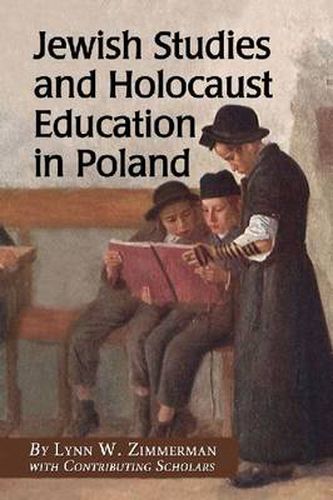Readings Newsletter
Become a Readings Member to make your shopping experience even easier.
Sign in or sign up for free!
You’re not far away from qualifying for FREE standard shipping within Australia
You’ve qualified for FREE standard shipping within Australia
The cart is loading…






The purpose of this volume is to examine the roles that formal and informal education play in learning about Jewish life, culture and history, including the Holocaust, in Poland. The volume provides background on broad concepts such as culture, identity, and stereotypes, as well as on specific topics such as Holocaust education as curriculum, various types of educational institutions, and the connection of the arts and cultural festivals to identity and culture. It also gives a brief overview of Polish history and Jewish history in Poland, as well as providing insight into how the Holocaust and Jewish life and culture are viewed and taught about in contemporary Poland. This background material is supported by essays from Poles who have been active in different ways with the changes that have taken place in Poland since 1989. A young Jewish-Polish man gives insight into what it is like to grow up in contemporary Poland, and a Jewish-Polish woman who was musical director and conductor of the Jewish choir, Tslil, gives her view of learning through the arts. Essays by Polish scholars active in Holocaust education and curriculum design give past, present, and future perspectives of learning about Jewish history and culture.
$9.00 standard shipping within Australia
FREE standard shipping within Australia for orders over $100.00
Express & International shipping calculated at checkout
The purpose of this volume is to examine the roles that formal and informal education play in learning about Jewish life, culture and history, including the Holocaust, in Poland. The volume provides background on broad concepts such as culture, identity, and stereotypes, as well as on specific topics such as Holocaust education as curriculum, various types of educational institutions, and the connection of the arts and cultural festivals to identity and culture. It also gives a brief overview of Polish history and Jewish history in Poland, as well as providing insight into how the Holocaust and Jewish life and culture are viewed and taught about in contemporary Poland. This background material is supported by essays from Poles who have been active in different ways with the changes that have taken place in Poland since 1989. A young Jewish-Polish man gives insight into what it is like to grow up in contemporary Poland, and a Jewish-Polish woman who was musical director and conductor of the Jewish choir, Tslil, gives her view of learning through the arts. Essays by Polish scholars active in Holocaust education and curriculum design give past, present, and future perspectives of learning about Jewish history and culture.